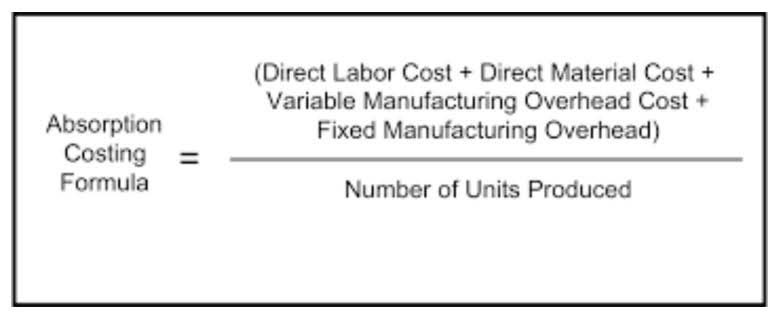
With the help of accounting consultancy services, you can boost your client’s contribution margin growth and confidence in you. Running an accounting practice is full of risk because you deal with transaction in high volumes and numbers. Chances are you will miss out on something that will cost you dearly. But an accounting consultant has the expertise to identify financial risks and recommend strategies, thus avoiding mistakes and ensuring your clients financial stability.

How do accounting consultants rate their job?
Your consultant will provide support and guidance, share best practices and recommendations, and hold you accountable to reach your goals. Each Practice Forward consultant is experienced in successfully guiding firms through the Practice Forward process. They dedicate themselves to helping your firm implement in a way that best serves your firm and your goals. If so, it’s time to put your knowledge and experience to work for you. Shifting to advisory is also a good choice for accountants thinking of leaving the profession. Strategizing with clients on a regular basis can bring the spark back to burned-out accountants.
Which companies pay accounting consultants the most?

For example, during the course of a restatement process, as the problems that led to the need to restate financial statements come to light, so do the need for process improvements and tightening of internal controls. New processes and policies, stronger SOX controls, training of staff, and other changes may be in order. Accounting consultants offer valuable business advisory services to their clients. They act as trusted advisors, providing guidance on financial matters, strategic decision-making, and risk management.
Discuss Fees and Terms
- You’ll find that large corporations will have tax departments in charge of different areas of tax compliance for the company.
- An Accounting Consultant typically has a bachelor’s degree in accounting, finance or a related field.
- A business preparing for rapid growth or acquisitions may hire a consultant to analyze trends, identify risks, and map out financial projections.
- Many consultants also have a master’s degree in business administration or a Certified Public Accountant (CPA) designation.
- Common tax specialties include corporate, partnership, international, employee benefits, and other niche areas of taxation.
Internal accountants are employees of a company, responsible for daily financial operations, recording transactions, managing https://emails.new2new.com/business-bookkeepers-bookkeeping-services-2/ payroll, and preparing routine financial statements. Their work is ongoing and integral to the operational flow of the business. In contrast, a consultant focuses on specific projects, problem-solving, or strategic advice, rather than continuous transactional duties. Essentially, accounting advisory services are geared toward identifying a clients’ business goals, setting the path toward those goals, and guiding the client down each step of that path.
- An accounting consultant brings deep knowledge and experience in finance and taxes that your team may not have.
- Good tax strategies can actually lose you money if done at the wrong time.
- With a CPA license and/or CMA certification, you are infinitely more competitive on the job market and can charge more for your services.
- If a client comes to you with a question that goes beyond the scope of their tax return, put your radar up.
- An Accounting Consultant is a person tasked to assist the accounting department of a company.
- The latest advances in technology can also help you analyze trends and support your clients with meaningful insight that helps their businesses grow and thrive.

Being an accountant can mean far more than preparing tax returns, compiling financial statements, handling technical compliance work or providing back-office accounting services. It’s becoming increasing popular for many CPAs to offer their services in an accounting consultant capacity, which is a bridge to becoming the holistic trusted advisor consumers are looking for in today’s economic climate. Organizations and individuals engage an accounting consultant during periods of significant change or when facing complex financial challenges that exceed in-house capabilities. For a new business, a consultant can establish foundational financial systems, including accounting software and internal control procedures, ensuring a solid start. Businesses experiencing rapid growth may seek a consultant’s help to scale their accounting solutions, implement sophisticated reporting, and manage increased transaction volumes efficiently.
Accounting Consultant Job Description FAQs
Accounting and consulting firms will respond to this need with one or sometimes multiple consultants, depending on timing and how many experts are needed to get the job done. Consultants could work at the client company on a five-days-a-week basis for a stretch of time or just a few hours a week. Becoming a tax consultant typically requires an undergraduate or graduate degree in accounting, finance, or tax.
Brenna has experience in recruiting for tech, finance, and marketingroles and has a passion for helping people find what is an accounting consultant their dream jobs. Shecreates expert resources to help job seekers write the best resumes andcover letters, land the job, and succeed in the workplace. To become an accounting consultant, you will typically need to have a bachelor’s degree in accounting or a related field. Many consultants also have a master’s degree in business administration or a Certified Public Accountant (CPA) designation. Experience working in an accounting or finance role is also helpful.
Company
An accounting consultant can serve as both teacher and guide for a business, especially when the business could benefit from accounting services or improvements to their own accounting processes and procedures. Short-term engagements with a clear objective call for consultancy. For example, a company might hire an accountant to optimize tax planning, conduct a compliance audit, or integrate a new accounting system. The latest advances in technology can also help you analyze trends and support your clients with meaningful insight that helps their businesses grow and thrive. As you and your staff begin to understand the challenges and opportunities of your clients, you can swiftly identify additional opportunities to serve them effectively.
- With a specialty, tax advisors can strategically align tax planning, preparation, and advocacy recommendations with the client’s goals and interests.
- This impartiality allows for unbiased evaluations and recommendations that can lead to significant improvements.
- Consulting can enhance financial performance, increase compliance, improve operational efficiency, and facilitate better decision-making.
- Accounting consultants fill these gaps—translating financial data into insights and recommendations that reveal opportunities and risks for their clients.
- If you’ve been considering consulting as the next stage in your career, you’re not alone.
- Startups and newly formed companies are, for instance, prone to be uninformed about matters compliance and regulations.
In order to drive growth in an ever-changing landscape, every company needs to have solid processes for accounting and financial reporting. Most accounting consultants stay in the world of operations and process improvement. Accounting consulting is supposed to provide guidance on how to better manage your financial systems. Think internal controls, budgeting, cleanup projects, and setting up repeatable processes. If you set up a home-based office and plan to have business-related professionals come to your home, you will need to determine what type of business-related liability and/or property insurance to obtain.
Accounting consultants find employment either as an independent contractor or with an established firm. Additionally, forensic accounting, internal audits and accounting system evaluation are among the more in-demand skills. From regulatory changes to technological advancements, this white paper provides the insights you need to stay ahead. Join other Practice Forward members for an in-person event at Synergy presented by your Practice Forward consultants collaborating with forward-thinking advisors. Access to over 190 tools (templates, pricing tools, checklists, videos, and more) to execute the Practice Forward methodology. Your membership also includes unlimited access to the online Learning Plan which provides eLearning, videos, and guidance to implement with maximum success.

